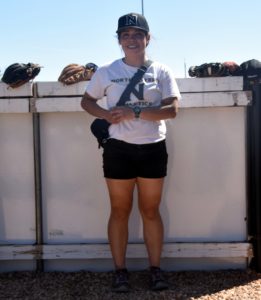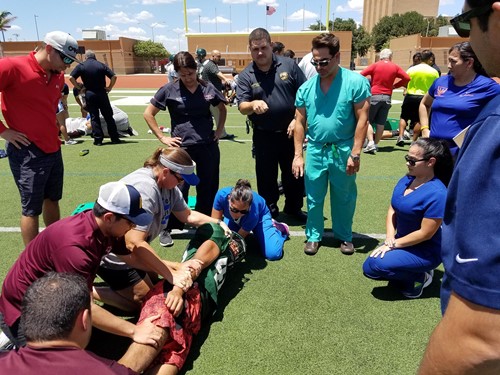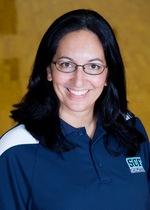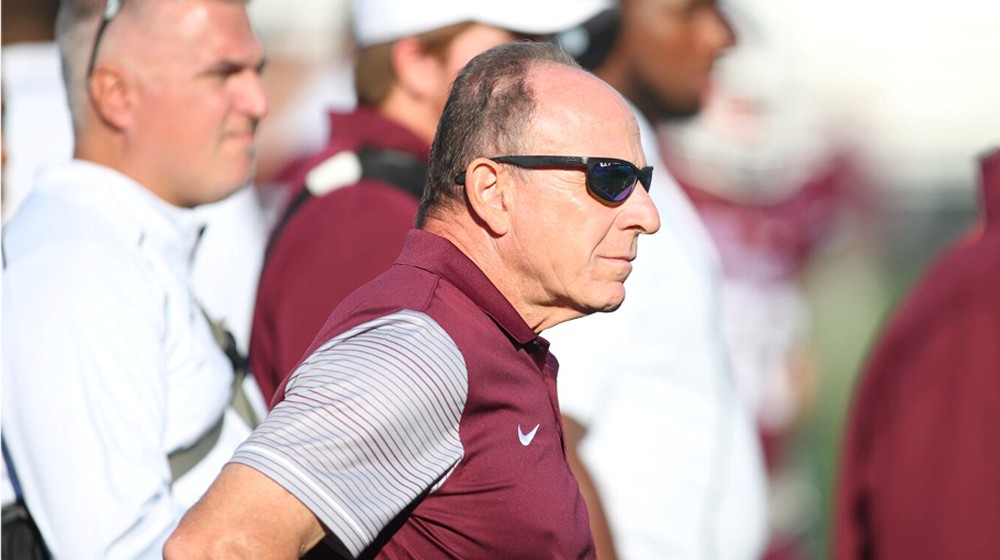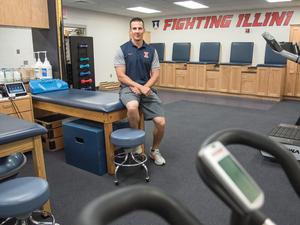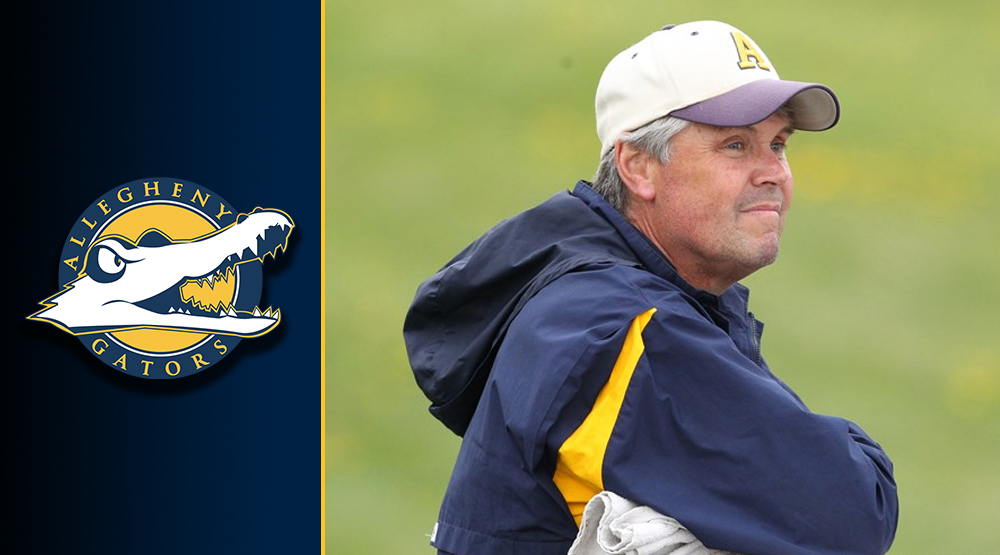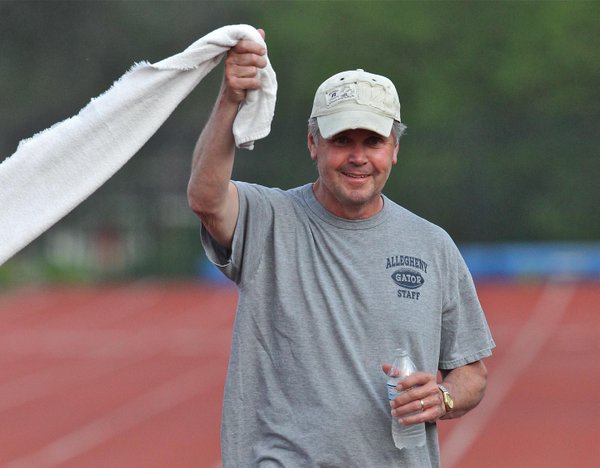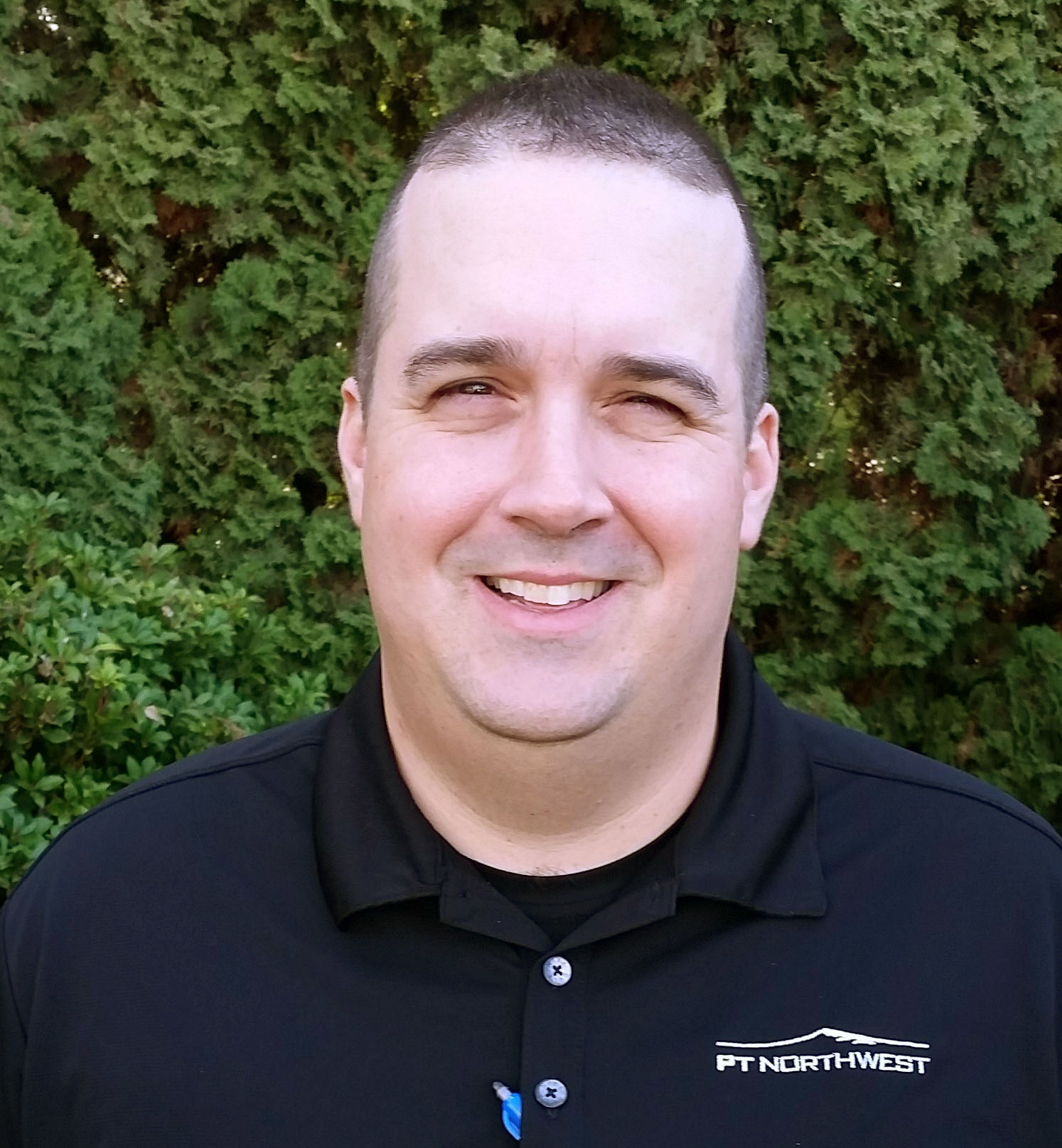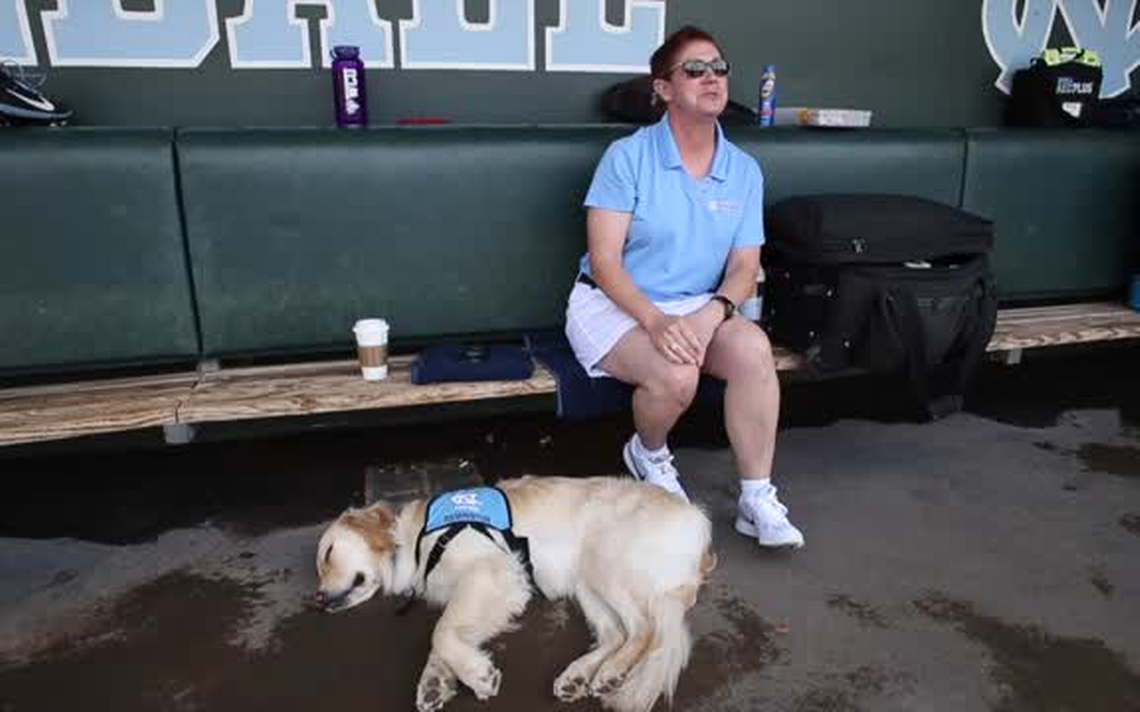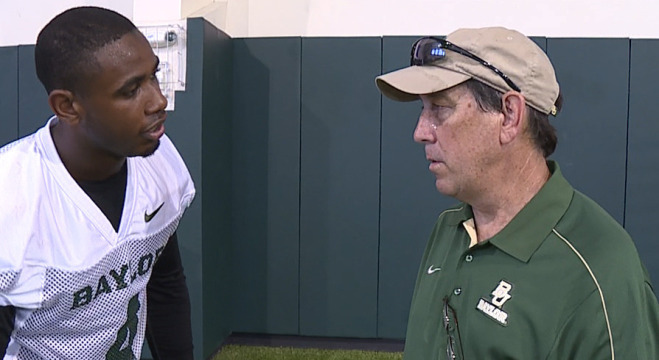
Article reposted from Baylor Bears
Author: Jerry Hill
From Gerald Ford to Donald Trump and from Grant Teaff to Matt Rhule, Mike Sims has been at Baylor as first a student trainer, then the first full-time assistant trainer and ultimately the Associate AD for Athletics Training for the last 42 years.
While Sims said he will “always be a Baylor fan,” another chapter in his life comes to an end when Sims leaves on June 23 to take a position with Southwest Sports Medicine.
“This is who I’ve grown up with, who my family have grown up with, kids and everything else,” said Sims, who turns 60 in August. “It’s always been a part of my life. I’ve talked to people who have done this before, and they say losing the day-to-day relationships with the players is what I’m going to miss the most. My whole life has been around 18-, 19-, 20-, 21-year-old kids, and I’m sure I’ll miss some of that, but I’ll always be a Baylor fan. This school and university have meant too much to me all through my life and my kids’ lives.”
Mack Rhoades, Vice President and Director of Baylor Athletics, said Sims’ “dedication to Baylor began as a student trainer and has been a constant throughout his more than 40 years of service to Baylor Athletics.”
“He has provided steady guidance of our Athletics Training area throughout his career, and he has positively impacted thousands of student-athletes along the way,” Rhoades said. “We are grateful to Mike for his decades of service to his alma mater and wish him success in his next chapter.”
A native of Cedar Hill, Texas, Sims actually started in the business as a student trainer at Cedar Hill High School, graduating in 1975. He then spent five years as a Baylor student trainer under Skip Cox, graduating with a Bachelor of Science degree in 1980 and a master’s degree two years later.
Sims said that working under Cox and Teaff, both in the Baylor Athletics Hall of Fame, “helped set my foundation and got me going, just seeing how they were so good about handing situations.”
“That’s how I learned the whole business,” he said of training under Cox. “The way our profession is, it’s more like a family. You do things the way you’re taught them to do them. And with Skip, good work habits and taking care of the players, those were the things he pushed.”
Walter Abercrombie, a former Baylor football player (1978-81) and now Associate AD for the “B” Association, said Sims was “in the same mold as Skip.”
“He just had a way of making you feel like he cared about you as much more than just an athlete. He cared about you as a person,” Abercrombie said. “Sometimes, athletes are a little superstitious when it comes to who they want to work with. But, Mike had a particular ability to make athletes feel that they were in excellent hands with him, to taping your ankle to taking care of you when you were sick and had to stay home.”
With that kind of personal touch, Sims hurt when his players hurt and rejoiced when they got back on the field after rehabilitation.
“One of the tough things in dealing with players is they’re our friends and we see our friends get injured,” he said. “One of the best things about what we do is they’re our friends and we see them come back and return to play. When somebody has been injured and they’re coming back to play, you’re as nervous as you can be, because they’re back out on the field for the first time. But, you’re also glad to see them back and glad to see them succeed.”
While the win-loss record doesn’t go under his name, Sims said, “If you get to where you don’t worry about whether you win or lose, then you don’t need to be in athletics.”
“It’s interesting, because you’re sitting on the sidelines as a fan, and somebody gets hurt. And you have to quickly change over from being a fan and make sound medical judgment,” he said. “That’s just something you have to learn how to do. Winning is important, but it’s not the most important. The health of the student-athletes is the most important.”
Former Baylor quarterback Nick Florence (2009-12), who now serves as Baylor’s Director of Athletics Development, said Sims had a unique way of interacting “with a generation significantly younger while also providing professional care.”
“It goes to show that he loves what he does and was good at it, that he was in it for that long of a time,” Florence said. “Mike was just as steady as they go, doing everything to the best of his ability. My favorite phrase from him is, ‘Just put ice on it.’ That was always the first thing out of his mouth, ‘Just put ice on it,’ whether he was joking or serious, depending on the situation.”
Like Cox before him, part of Sims’ job was also mentoring all the student trainers that came through Baylor in his 37 years on staff. Three of the current staff learned under his tutelage – David Chandler, Alex Olson and Kevin Robinson.
“You couldn’t ask for a better boss,” said Chandler, who works with men’s basketball. “He’s always there to support you and help you and do whatever you need. At the same time, he let you do your job. He didn’t stand over you, telling you how to do your job, he just let you do it.
“None of us can work as hard as Mike Sims or as long as Mike Sims. It’s a tribute to him and really a tribute to his family to have been able to put up with that, because he worked crazy hours, and I think that’s probably part of the reason why he’s leaving. This is a sad day for me, but I’m happy for him.”
Another side of Sims was his unofficial role as “Mr. Fix-it.” With a set of tools always at hand, “If anything needed to get done in the athletics department, Mike was the person people would go to,” Chandler said. “Mike was the jack-of-all-trades. As we’ve evolved into such a larger staff, it’s not needed as much now. But, he was the guy that could get things done.”
That included doing electrical work or fixing the radios or in-house speakers at the “B” Association, Abercrombie said.
“Mike would come over, bring his old tool kit, fix the problem and would never take a payment. He was just that kind of guy.”
In the 42 years since he first came to Baylor as a student trainer in the fall of 1975, Sims has seen an evolution in his business and the athletes themselves.
“Technologically, we do a lot more stuff than we used to,” he said. “Medically, we take care of a lot more things than we used to. The athletes have gotten a whole lot bigger than they were. When I came as a student in 1975, you would see guys who were 275, 280, and they were the biggest things anyone had ever seen on campus. Well, that’s not big enough now.
“So, the size alone has made a huge difference, and the athletes work out year-around. They stay in good physical shape. They’re stronger than they’ve ever been, bigger than they’ve ever been and faster than they’ve ever been.”
Through eight different head football coaches, Sims has been to 476 consecutive games – from an 18-17 win over South Carolina on Oct. 2, 1976, to the 31-12 victory over Boise State in the Motel 6 Cactus Bowl on Dec. 27, 2016.
That streak may end this fall, but something tells me Sims will continue to see his share of Baylor athletic events.
“I think he approached his job as a ministry, doing for other people,” Abercrombie said. “He was more than just an athletics trainer. He was a friend, he was a confidante, and I feel sorry for the young people going forward who will not have the opportunity to experience Mike Sims and be under his care during their athletics career.”
